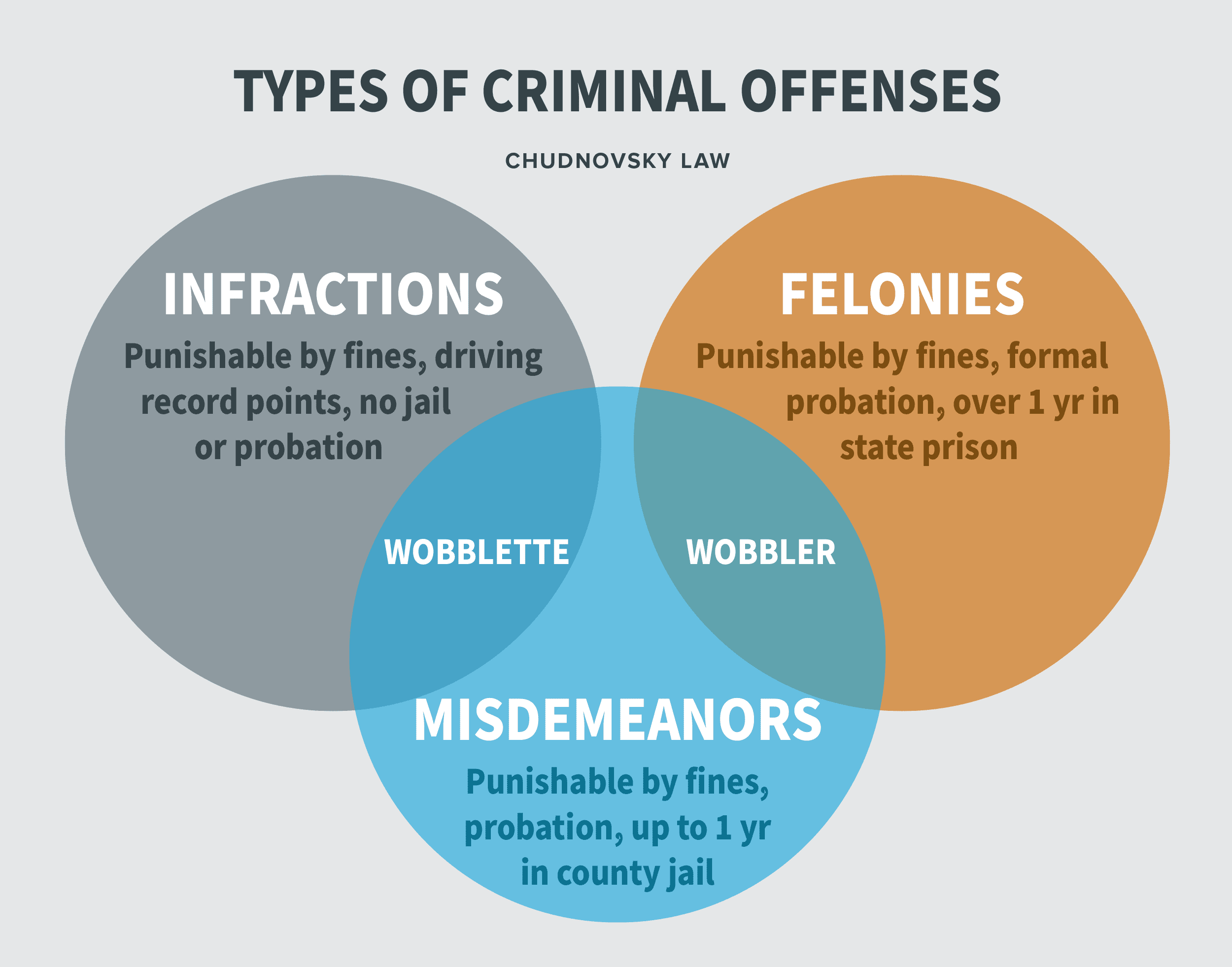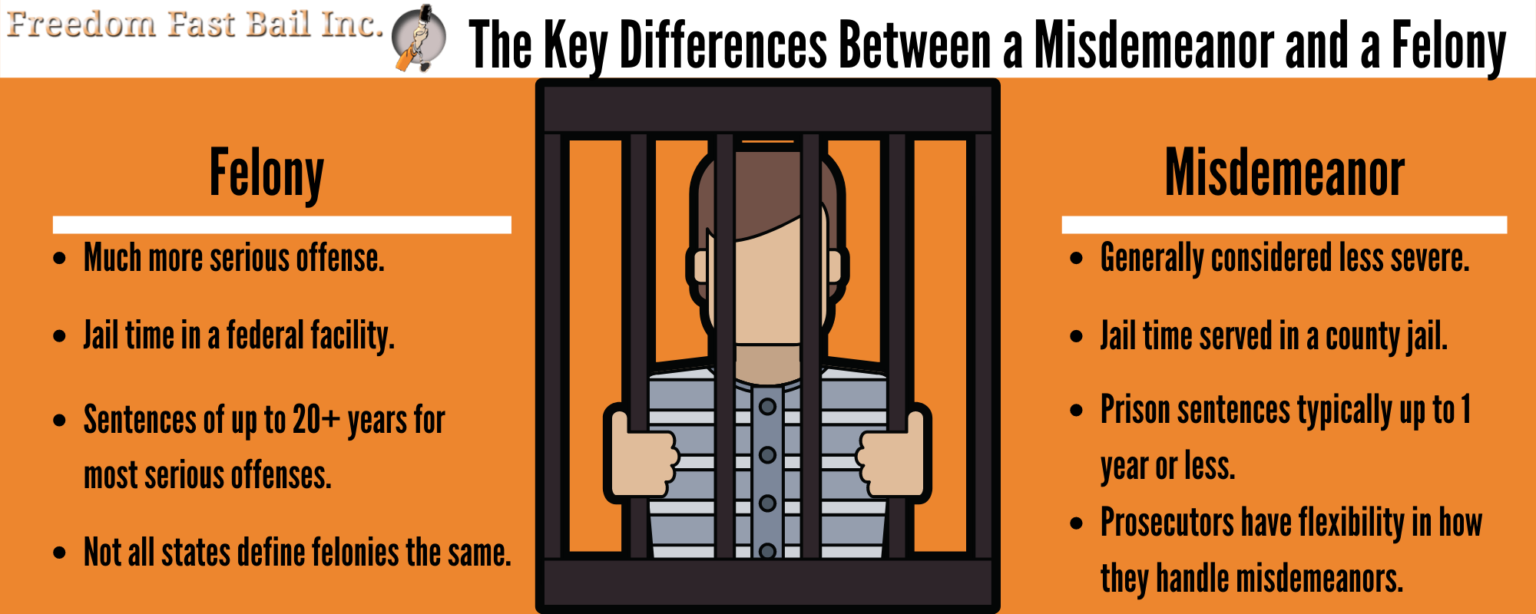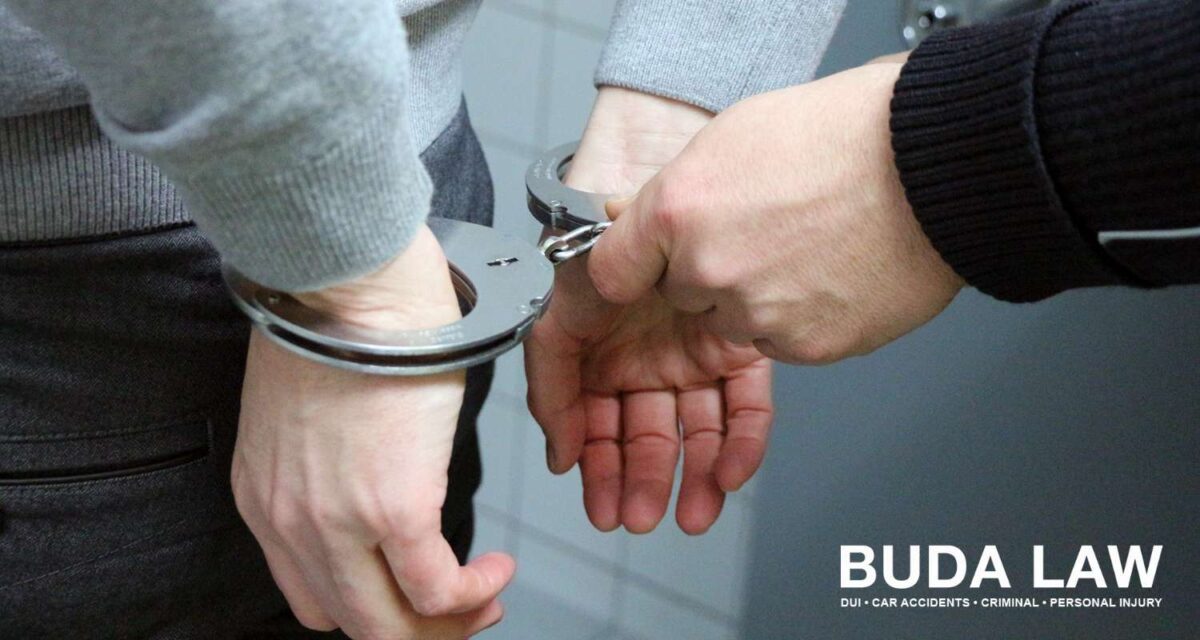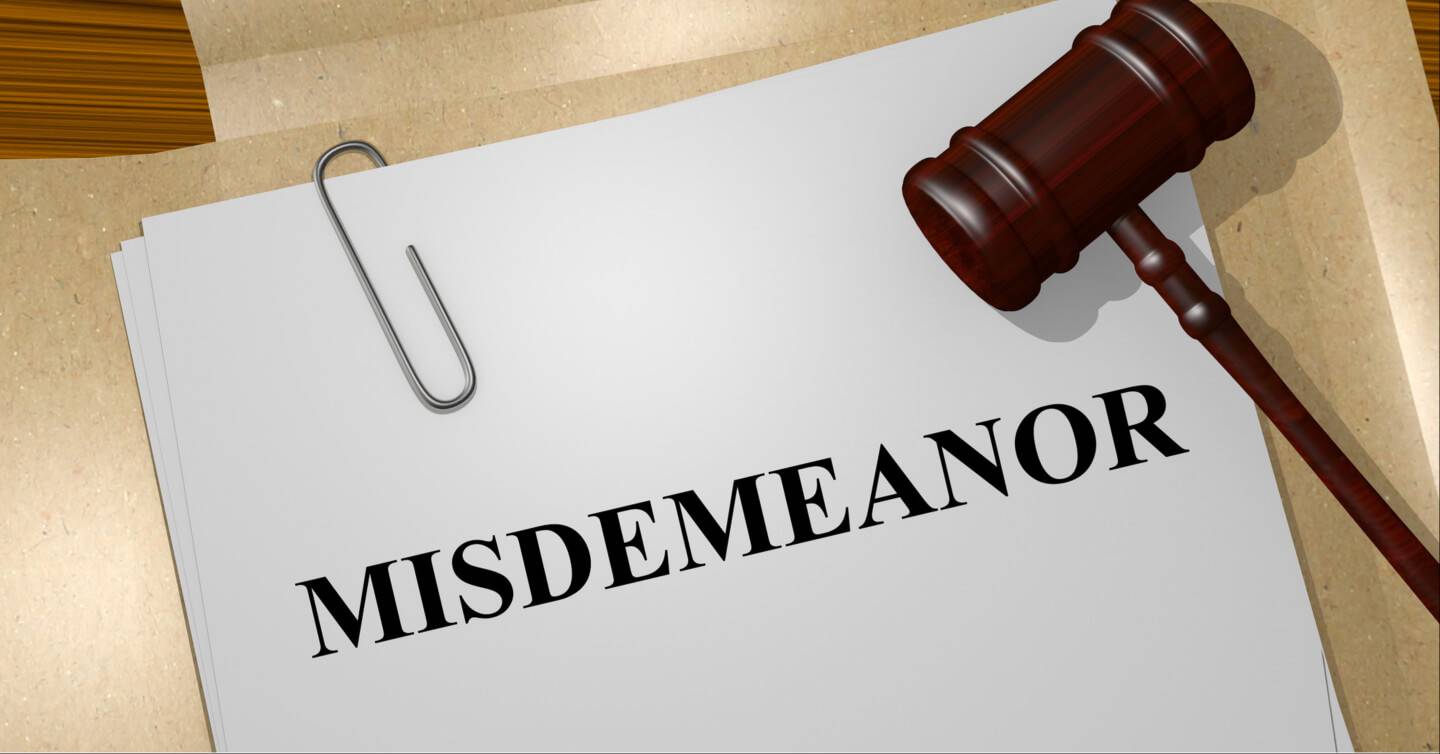Can You Get Arrested For Misdemeanor - The likelihood that you'll be incarcerated for a. There are three general types of offenses: Felonies (which can be subject to term in a state prison), misdemeanors (which can be subject to up to. In most states, a person convicted of a misdemeanor faces up to a year in jail. Not every misdemeanor conviction results in time. By no means just because you have been arrested for a misdemeanor, this does not mean you are automatically going to jail. In most cases, misdemeanor jail sentences can't exceed two years in length. In summary, you do not typically get arrested for a misdemeanor, unless you’re unable to post bail, are a repeat offender, or are. In fact, it is not at all uncommon for a misdemeanor. You do not need to be arrested in order to be charged with a misdemeanor.
In most cases, misdemeanor jail sentences can't exceed two years in length. Misdemeanor offenses, while generally less severe than felonies, can still carry significant legal consequences. There are three general types of offenses: Felonies (which can be subject to term in a state prison), misdemeanors (which can be subject to up to. In fact, it is not at all uncommon for a misdemeanor. In most states, a person convicted of a misdemeanor faces up to a year in jail. The likelihood that you'll be incarcerated for a. You do not need to be arrested in order to be charged with a misdemeanor. By no means just because you have been arrested for a misdemeanor, this does not mean you are automatically going to jail. Not every misdemeanor conviction results in time.
In fact, it is not at all uncommon for a misdemeanor. You do not need to be arrested in order to be charged with a misdemeanor. Misdemeanor offenses, while generally less severe than felonies, can still carry significant legal consequences. In most states, a person convicted of a misdemeanor faces up to a year in jail. In most cases, misdemeanor jail sentences can't exceed two years in length. Not every misdemeanor conviction results in time. Felonies (which can be subject to term in a state prison), misdemeanors (which can be subject to up to. In summary, you do not typically get arrested for a misdemeanor, unless you’re unable to post bail, are a repeat offender, or are. By no means just because you have been arrested for a misdemeanor, this does not mean you are automatically going to jail. The likelihood that you'll be incarcerated for a.
6 Reasons to Reduce Felony to Misdemeanor Worth It
You do not need to be arrested in order to be charged with a misdemeanor. There are three general types of offenses: In most states, a person convicted of a misdemeanor faces up to a year in jail. Not every misdemeanor conviction results in time. Felonies (which can be subject to term in a state prison), misdemeanors (which can be.
What Happens If You Get an Out of State Warrant for Arrest? » Suhre
Not every misdemeanor conviction results in time. You do not need to be arrested in order to be charged with a misdemeanor. Misdemeanor offenses, while generally less severe than felonies, can still carry significant legal consequences. In most states, a person convicted of a misdemeanor faces up to a year in jail. In summary, you do not typically get arrested.
Difference Between Felonies and Misdemeanors in Texas
You do not need to be arrested in order to be charged with a misdemeanor. Felonies (which can be subject to term in a state prison), misdemeanors (which can be subject to up to. The likelihood that you'll be incarcerated for a. By no means just because you have been arrested for a misdemeanor, this does not mean you are.
Texas Arrest Records Can You Get Arrested for a Misdemeanor in Texas
There are three general types of offenses: By no means just because you have been arrested for a misdemeanor, this does not mean you are automatically going to jail. The likelihood that you'll be incarcerated for a. Misdemeanor offenses, while generally less severe than felonies, can still carry significant legal consequences. In most cases, misdemeanor jail sentences can't exceed two.
Misdemeanor Arrests in Oklahoma Doney Law, PLLC
There are three general types of offenses: In fact, it is not at all uncommon for a misdemeanor. Misdemeanor offenses, while generally less severe than felonies, can still carry significant legal consequences. Not every misdemeanor conviction results in time. In most states, a person convicted of a misdemeanor faces up to a year in jail.
California Misdemeanor Lawyer Chudnovsky Law
There are three general types of offenses: The likelihood that you'll be incarcerated for a. In summary, you do not typically get arrested for a misdemeanor, unless you’re unable to post bail, are a repeat offender, or are. Misdemeanor offenses, while generally less severe than felonies, can still carry significant legal consequences. In most states, a person convicted of a.
The Differences Between Felonies and Misdemeanors
In most cases, misdemeanor jail sentences can't exceed two years in length. Misdemeanor offenses, while generally less severe than felonies, can still carry significant legal consequences. In summary, you do not typically get arrested for a misdemeanor, unless you’re unable to post bail, are a repeat offender, or are. By no means just because you have been arrested for a.
1st Degree Misdemeanor Florida Examples and Penalties
Felonies (which can be subject to term in a state prison), misdemeanors (which can be subject to up to. There are three general types of offenses: In most states, a person convicted of a misdemeanor faces up to a year in jail. The likelihood that you'll be incarcerated for a. You do not need to be arrested in order to.
What Can You Do to Get Misdemeanor Charges Expunged?
Misdemeanor offenses, while generally less severe than felonies, can still carry significant legal consequences. In fact, it is not at all uncommon for a misdemeanor. Not every misdemeanor conviction results in time. By no means just because you have been arrested for a misdemeanor, this does not mean you are automatically going to jail. In summary, you do not typically.
What To Do When You’re Arrested In Colorado Springs
In summary, you do not typically get arrested for a misdemeanor, unless you’re unable to post bail, are a repeat offender, or are. Misdemeanor offenses, while generally less severe than felonies, can still carry significant legal consequences. In fact, it is not at all uncommon for a misdemeanor. Not every misdemeanor conviction results in time. You do not need to.
There Are Three General Types Of Offenses:
You do not need to be arrested in order to be charged with a misdemeanor. In most cases, misdemeanor jail sentences can't exceed two years in length. Not every misdemeanor conviction results in time. In summary, you do not typically get arrested for a misdemeanor, unless you’re unable to post bail, are a repeat offender, or are.
Misdemeanor Offenses, While Generally Less Severe Than Felonies, Can Still Carry Significant Legal Consequences.
Felonies (which can be subject to term in a state prison), misdemeanors (which can be subject to up to. In most states, a person convicted of a misdemeanor faces up to a year in jail. By no means just because you have been arrested for a misdemeanor, this does not mean you are automatically going to jail. In fact, it is not at all uncommon for a misdemeanor.









